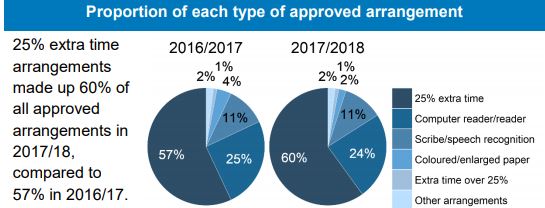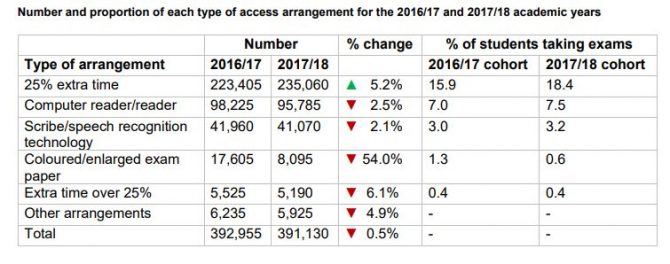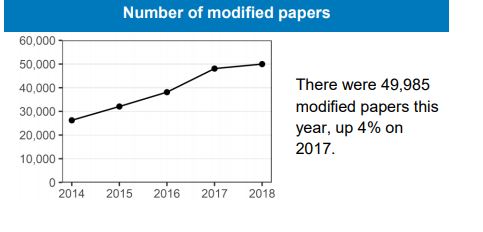The number of pupils with disabilities, illnesses or special educational needs receiving help to sit exams has fallen for the first time in at least five years.
Statistics published by Ofqual this morning show that the number of approved access arrangements fell from around 400,000 to 391,000 between 2016-17 and 2017-18, a drop of 0.5 per cent.
This is the first time the arrangements have experienced a drop since at least 2013-14, the statistics show.
Access arrangements are the adjustments made for pupils sitting GCSEs, AS and A-levels to make sure they are not unfairly disadvantaged because of a disability, special educational need, temporary illness, injury or if their first language is not English.
They are separate to post-exam adjustments to the marks of pupils who are dealing with exceptional circumstances, such as bereavement, at the time of the exam.
The most common arrangement is for pupils to be given 25 per cent extra time. This made up 60 per cent of all arrangements in 2017-18 and 57 per cent in 2016-17.
Other adjustments can include use of computers, a scribe or speech recognition tool and a specially coloured or enlarged exam paper.
The overall number of pupils receiving 25 per cent extra time grew by five per cent last year to make up more than 18 per cent of the overall 2017-18 cohort, in comparison to 16 per cent the year before.
Almost every other type of arrangement experienced a drop in numbers, with the most dramatic drop being in the use of coloured or enlarged exam papers which fell by 54 per cent, from 17,605 in 2016-17 to just 8,095 in 2017-18.


However, the overall number of modified papers grew slightly last year, with a 4 per cent rise to almost 50,000. Last year, Ofqual recorded a dramatic 26 per cent rise in exam papers modified for access, meaning the figure has leapt 30 per cent since 2015/16.
Modified question papers are often used by pupils with visual impairments or language comprehension disorders and must be requested for each individual exam paper. This is different to the other access arrangements, where just one request is made for each candidate across all exams.

In February, research by the International Examination Officers’ Associations found that schools find exam access arrangements confusing and overly strict, and want “much clearer” guidance.


Your thoughts